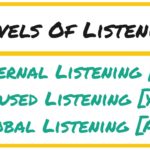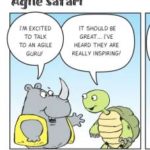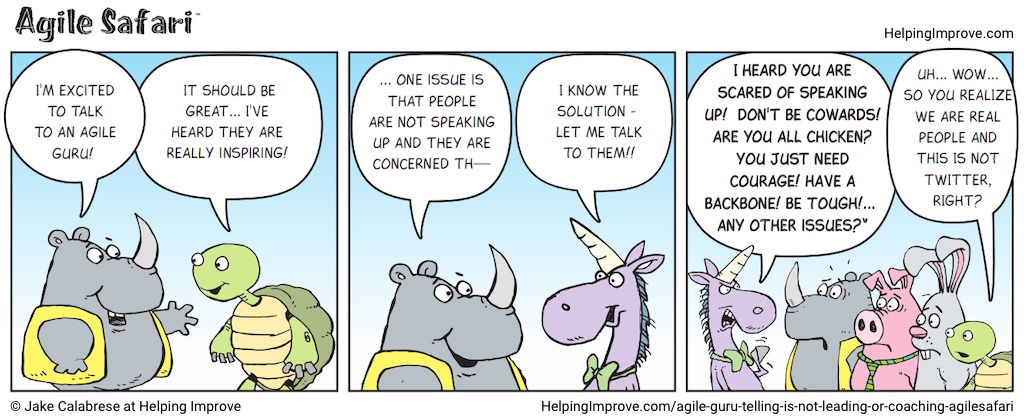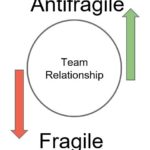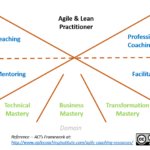Many people are working from home at this point and this will obviously continue for a while. Many organizations had already been working remote. I’ve worked on a number of remote teams and with a number of remote organizations well before the current situation we are in. I’ve done remote work as a coach, trainer, product manager, and team member well before the current situation we are in. Each of those instances I found myself enjoying some aspects of the work and also wishing for aspects to be in person. One of the most challenging things to do remotely is to listen.
Professional Coaching
Agile Leadership Myth #1: Telling people “You Are Empowered” Actually Works
A major challenge we run into when helping organizations shift or improve is leadership misconceptions. Agile leadership myths cause a lot of these misconceptions. We need to help avoid falling into the trap of these common myths because they limit our success. A root cause of many of the myths is that people simply don’t know what else to do.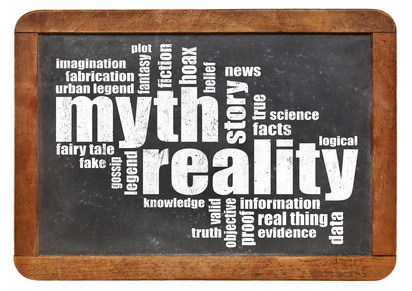 For example, Myth #1: ‘telling people “you are empowered” actually works.’ Leaders often don’t know what else to do, other than tell teams they are empowered. We see this with Development Teams, Scrum Teams, Delivery Teams, AND Leadership Teams.
For example, Myth #1: ‘telling people “you are empowered” actually works.’ Leaders often don’t know what else to do, other than tell teams they are empowered. We see this with Development Teams, Scrum Teams, Delivery Teams, AND Leadership Teams.
A bit of background — there are many agile leadership myths out there. These myths (or assumptions) limit leaders ability to improve, help others, and succeed. Many myths seem to occur at a nonconscious level, meaning they function like many biases. People are not even aware, consciously, that they are happening.
Building Antifragile Relationships and Teams
I’ve presented a number of sessions on building antifragile relationships and teams. This post is a summary of the information from the sessions for anyone who attended (or anyone who is interested) as well links to related articles.
Focusing Agile Retrospectives
The most common agile retrospective focus is on the sprint (or iteration) that was just completed. For most agile teams, this is the past two weeks. We have many more options for retrospectives than simply looking back on the last sprint. We can look at a specific topic, an event, use a future focus, or look at a much longer timeline. Regardless of the focus, we are aiming to learn, generate ideas, and (ideally) agree on actions to take moving forward to improve to sustain.
Agile Safari – What’s Not Being Said?
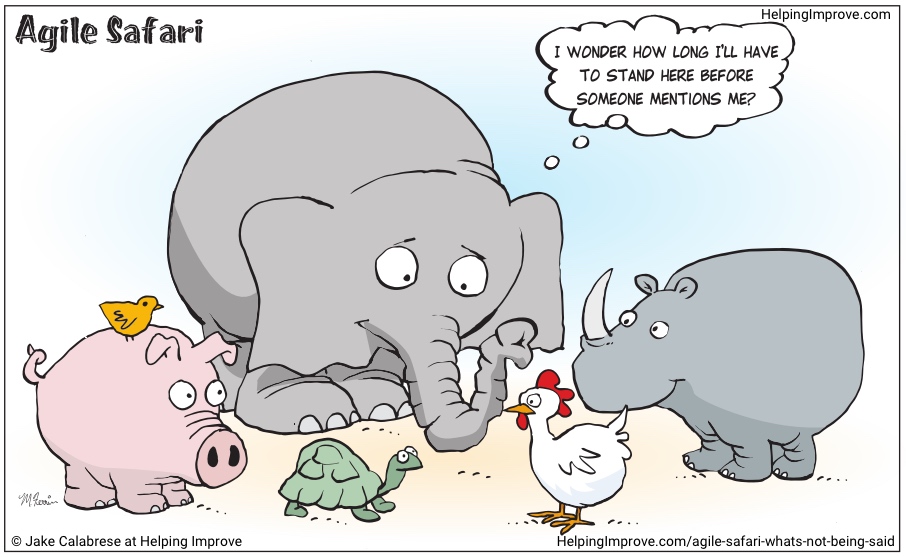
Have you been in a situation where no one would bring up the problem that everyone knew was “in the room?” I’d guess that everyone has been there. So often, we don’t bring up the “elephant in the room.” For anyone who has not heard of this, the elephant in the room is a saying for the real or obvious truth that is not being addressed. Given an elephant in a room would be hard to miss, when people ignore it, they are typically pretending it is not there.
Understanding the Agile Coach Competency Framework (Part 1)
Agile Coaching. A seemingly simple term that causes so much confusion. Much of the confusion seems to stem from the reasonable question of “what does an agile coach do?” ACI (Agile Coaching Institute) defined an Agile Coach Competency Framework. I’ve used the framework over the years both for agile coaching and leadership. I find it valuable to help people to understand the different perspectives they can approach agile coaching from. We use the framework as a one tool in Advanced Scrum Master Training (A-CSM) and as one set of approaches and skills in Leading Amazing Teams Training. We find it offers leaders insights into how they can shift from a leader-follower to a leader-leader approach to leadership. ACI had a whitepaper outlining the framework (created by Lyssa Adkins and Michael Spayd on a website – no longer active). This article includes my summary of it based on multiple sources — as well as my personal experience with it and ways to learn from it.
Thoughts on Professional Coaching
I get a lot of questions about coaching – what is it, what do you mean by the word ‘coach’, is it the same as mentoring, is coaching just asking questions… and many more.
Who do you coach?
I coach people. 🙂 These may be individuals, pairs, couples, teams, organizations, or systems.
Can you tell me more about what the word Coach means to you?
 The word ‘Coach’ tends to have a lot of different uses. When I talk about coaching, I am referring to professional coaching, which in the US, tends to be associated with standards laid out by the International Coaching Federation (ICF). I view coaching as helping people find the internal wisdom to achieve their goals by moving beyond whatever is stopping them or slowing them down. Coaching is NOT about telling people what to do or judging them – the coach may be an expert on “coaching” but is not the expert on the person or the goals they have. This is concept is misunderstood by a lot of people. A coach is not the person who says “do this” or “don’t do that”! Coaching is always about the clients agenda – NOT the coach’s! The coach relies on the client being fabulous, amazing, and wanting to move forward toward a goal! That sounds over the top to some, but it really isn’t, it’s about having faith in the person! The key is that as a coach, I need to fully believe that the person (or people or system) I am coaching has the wisdom to solve their challenges. They might need some help in finding or accessing that wisdom or working through different options, but they can access the information to let them move forward! This is not always an easy place to stand, but believing in the client is a fundamental part of professional coaching. It does not work without it.
The word ‘Coach’ tends to have a lot of different uses. When I talk about coaching, I am referring to professional coaching, which in the US, tends to be associated with standards laid out by the International Coaching Federation (ICF). I view coaching as helping people find the internal wisdom to achieve their goals by moving beyond whatever is stopping them or slowing them down. Coaching is NOT about telling people what to do or judging them – the coach may be an expert on “coaching” but is not the expert on the person or the goals they have. This is concept is misunderstood by a lot of people. A coach is not the person who says “do this” or “don’t do that”! Coaching is always about the clients agenda – NOT the coach’s! The coach relies on the client being fabulous, amazing, and wanting to move forward toward a goal! That sounds over the top to some, but it really isn’t, it’s about having faith in the person! The key is that as a coach, I need to fully believe that the person (or people or system) I am coaching has the wisdom to solve their challenges. They might need some help in finding or accessing that wisdom or working through different options, but they can access the information to let them move forward! This is not always an easy place to stand, but believing in the client is a fundamental part of professional coaching. It does not work without it.

